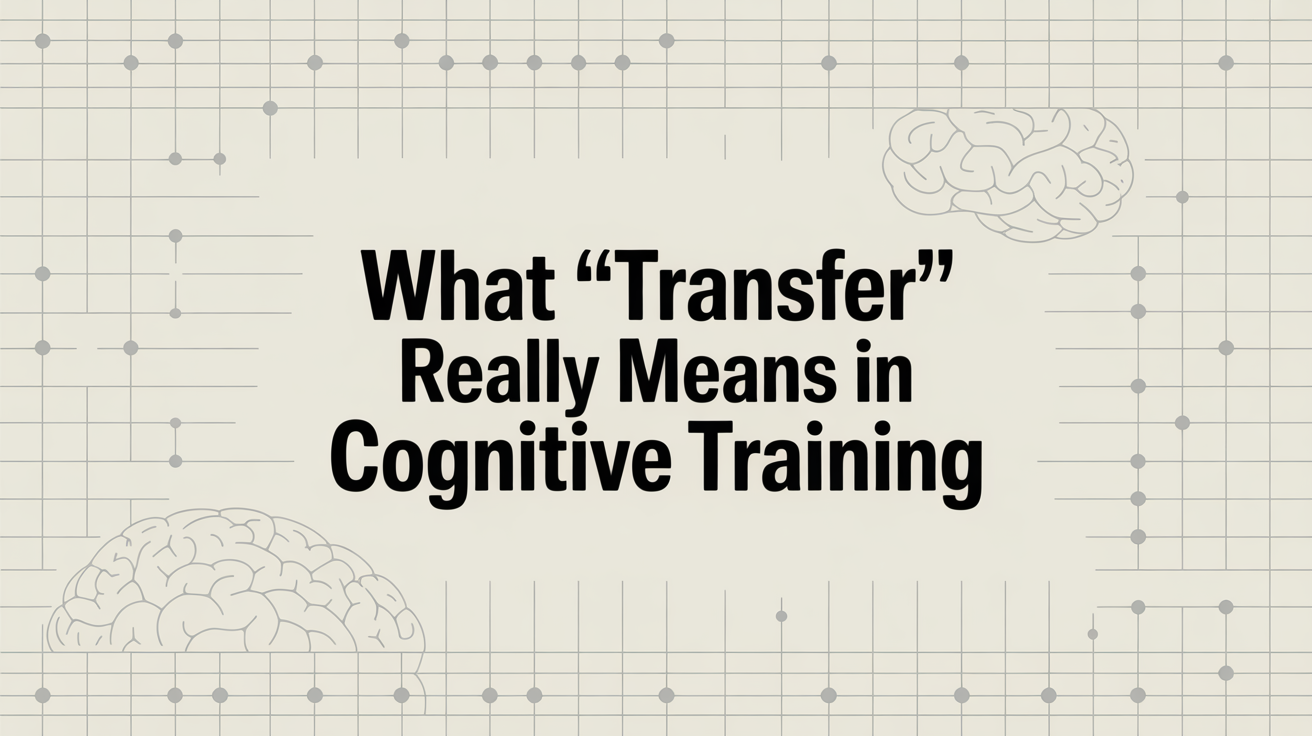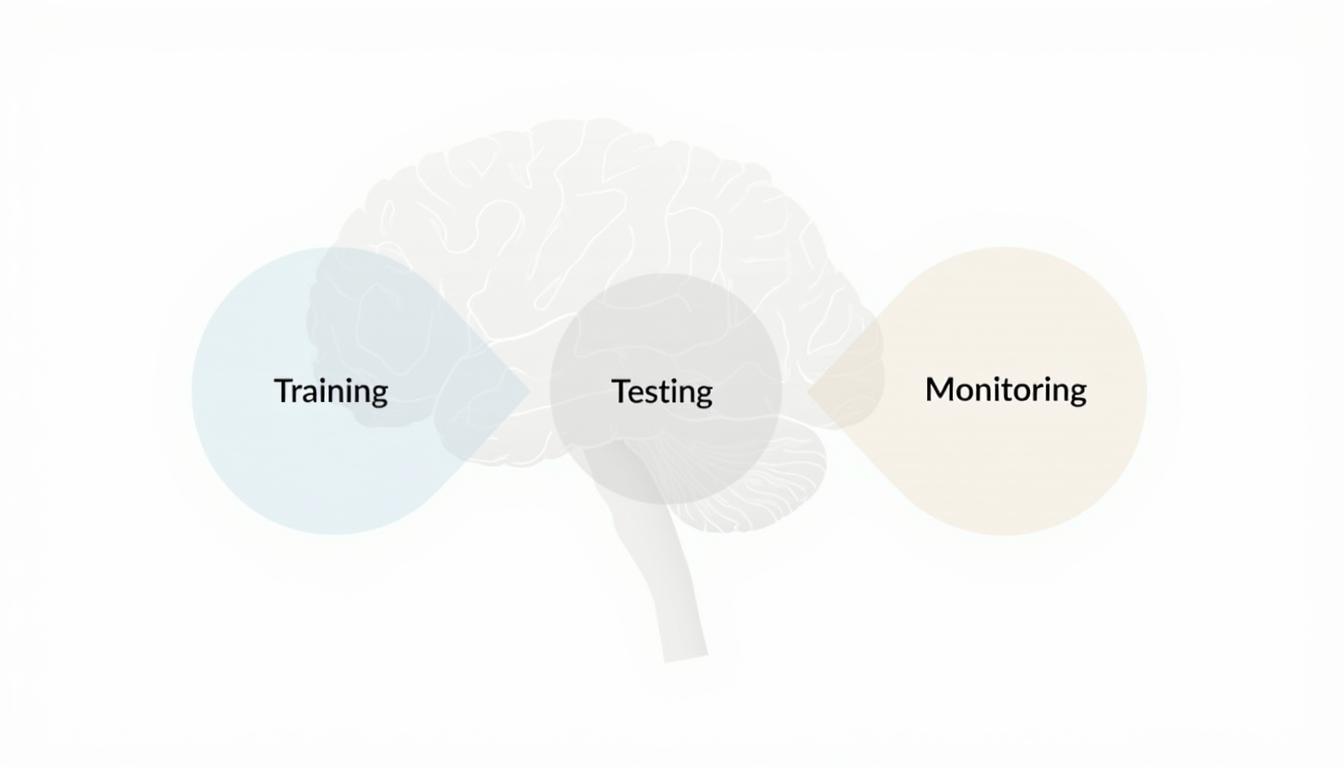Welcome to the Research and Strategy Services at in today's fast-paced.


As we age, maintaining brain health becomes just as important as keeping the body fit. Seniors often experience cognitive changes, including memory decline and slower processing speeds. However, scientific research and brain training tools like NeuroTracker show that diet plays a crucial role in supporting brain function, and the right foods can help protect against cognitive decline.
Certain brain-boosting foods contain essential nutrients that promote better memory, sharper focus, and overall cognitive well-being. From antioxidant-rich foods like blueberries to omega-3 fatty acids found in fatty fish, these superfoods support brain health by reducing inflammation, improving blood flow, and protecting neurons from damage.
This guide explores eight powerful superfoods that can help enhance cognitive function in the elderly. By incorporating these foods into a daily diet, seniors can take proactive steps to support healthy aging and maintain mental clarity. Let’s dive into the best foods for optimal brain function and how they contribute to long-term cognitive health.
Blueberries are often referred to as “brain berries” due to their impressive ability to support cognitive function in the elderly. These small but powerful fruits are packed with antioxidants, particularly flavonoids, which help combat oxidative stress—a major contributor to cognitive decline and neurodegenerative diseases like Alzheimer’s.
Studies show that regular consumption of blueberries and memory are closely linked. The antioxidant-rich foods in blueberries work by reducing inflammation and improving communication between brain cells. Research published in the Annals of Neurology found that seniors who consumed blueberries and strawberries regularly experienced slower cognitive aging by up to 2.5 years compared to those who didn’t.
Beyond memory support, blueberries also help enhance brain plasticity, the brain’s ability to form new neural connections. Seniors can incorporate blueberries into their diet by adding them to smoothies, oatmeal, or yogurt. Whether eaten fresh or frozen, their brain-boosting benefits remain intact, making them an easy and delicious way to support cognitive function and maintain healthy aging.

Fatty fish such as salmon, mackerel, and sardines are among the best foods for brain training for elderly individuals. These fish are packed with omega-3 fatty acids, essential for cognitive function and overall brain health in seniors. Omega-3s, particularly DHA (docosahexaenoic acid), are crucial for maintaining the structure and integrity of brain cells, reducing inflammation, and supporting neuron communication.
Research has consistently shown that individuals who consume fish rich in omega-3 fatty acids benefits experience slower cognitive decline and are at a lower risk of developing Alzheimer’s disease. A study published in Neurology found that seniors with higher DHA levels performed significantly better on memory and problem-solving tests.
Additionally, omega-3s help improve blood flow to the brain, reducing the risk of strokes and other age-related cognitive issues. To maximize these benefits, seniors should aim to eat at least two servings of fatty fish per week. Grilled or baked salmon, tuna salads, or mackerel sandwiches are great ways to incorporate omega-3-rich foods into a balanced diet. For those who don’t consume fish, algal oil supplements or plant-based options like flaxseeds and walnuts can provide similar cognitive benefits.

Leafy greens like spinach, kale, and broccoli are among the most important brain-boosting foods for seniors. These vegetables are rich in essential nutrients such as folate, vitamin K, lutein, and beta-carotene, all of which contribute to cognitive function in the elderly.
Research published in Neurology found that seniors who consumed leafy greens nutrition daily had slower cognitive decline compared to those who didn’t. The high levels of antioxidants and anti-inflammatory compounds in these vegetables help combat oxidative stress, which can damage brain cells over time.
One of the standout nutrients in leafy greens is vitamin K, which plays a key role in brain function by supporting the formation of sphingolipids, a type of fat crucial for healthy brain cells. Additionally, folate helps reduce levels of homocysteine, an amino acid linked to cognitive decline and dementia.
Incorporating leafy greens into the diet is simple. Seniors can enjoy a fresh spinach brain health salad, add kale to smoothies, or steam broccoli as a side dish. Even a small daily intake of leafy greens can provide significant brain-boosting benefits, making them an essential part of a healthy aging diet.

Nuts and seeds are excellent for brain training for elderly individuals due to their high content of vitamin E, healthy fats, and essential micronutrients. Vitamin E is a powerful antioxidant that helps protect brain cells from oxidative stress, which can contribute to cognitive decline over time.
Studies have shown that consuming vitamin E sources like almonds, sunflower seeds, and hazelnuts may help improve cognitive function and reduce the risk of neurodegenerative diseases. Additionally, walnuts cognitive benefits are particularly noteworthy, as they contain omega-3 fatty acids and polyphenols that support brain health in seniors.
Nuts and seeds also provide monounsaturated fats, which help maintain healthy blood flow to the brain. This is crucial for keeping neurons functioning efficiently and preventing age-related cognitive issues.
For seniors looking to incorporate more brain-boosting foods into their diet, nuts and seeds are a convenient option. They can be added to oatmeal, salads, or yogurt, or enjoyed as a healthy snack. Even a small handful of walnuts, almonds, or flaxseeds daily can provide the omega-3 fatty acids benefits and antioxidant protection needed for long-term brain health and healthy aging.

Turmeric has gained significant attention for its role in brain health in seniors, primarily due to its active compound, curcumin. This powerful antioxidant and anti-inflammatory agent helps protect brain cells from damage and supports cognitive function in the elderly.
One of the most well-documented curcumin health benefits is its ability to cross the blood-brain barrier, allowing it to directly impact brain cells. Research suggests that curcumin may help reduce the buildup of amyloid plaques, which are associated with Alzheimer’s disease. Additionally, turmeric has been linked to enhanced memory and mood, with studies showing improvements in cognitive performance among seniors who consume it regularly.
Beyond its brain-boosting effects, turmeric supports overall healthy aging by reducing inflammation throughout the body, which can contribute to neurodegenerative diseases.
Seniors can incorporate turmeric anti-inflammatory properties into their diet by adding it to soups, stews, or smoothies. A simple golden milk recipe—combining turmeric with warm milk and black pepper (which enhances curcumin absorption)—is an easy way to reap its benefits. By including turmeric in their daily routine, seniors can take advantage of its brain-protective properties and support long-term cognitive health.

Dark chocolate isn’t just a delicious treat—it’s also a brain-boosting food packed with flavonoids, antioxidants, and essential nutrients that support cognitive function in the elderly. The flavonoids found in cocoa help improve blood flow to the brain, reduce inflammation, and enhance memory and problem-solving skills.
One of the key flavonoids in dark chocolate is epicatechin, which has been shown to support the growth of neurons and protect brain cells from oxidative stress. A study published in the journal Frontiers in Nutrition found that regular consumption of dark chocolate with high cocoa content can enhance cognitive performance and even boost mood.
Dark chocolate is also linked to increased dopamine and serotonin levels, which can help reduce stress and support emotional well-being in seniors. This makes it an excellent choice for those looking to maintain both mental sharpness and a positive mood.
To get the most brain-boosting benefits, seniors should opt for dark chocolate that contains at least 70% cocoa. Enjoying a small square of high-quality dark chocolate daily—either on its own or added to a smoothie—can be a simple and enjoyable way to support brain health in seniors while satisfying a sweet tooth.

Avocados are a nutrient-dense food that provides monounsaturated fats, which are essential for brain health in seniors. These healthy fats help maintain steady blood flow to the brain, ensuring neurons receive the oxygen and nutrients they need to function optimally.
In addition to monounsaturated fats, avocados are rich in vitamin K and folate, both of which support cognitive function in the elderly. Folate plays a key role in reducing homocysteine levels, an amino acid linked to an increased risk of Alzheimer’s disease and cognitive decline. Vitamin K, on the other hand, is essential for brain cell maintenance and overall neuronal health.
Research suggests that a diet incorporating healthy fats, such as those found in avocados, may help protect against age-related cognitive issues. A study published in the journal Nutrients found that individuals who consumed monounsaturated fats regularly performed better on memory and learning tasks compared to those who did not.
Seniors can easily add avocado and brain function benefits to their diet by spreading it on toast, blending it into smoothies, or adding it to salads. Regular consumption of avocados can help support long-term cognitive health, making them a valuable addition to a healthy aging diet.

Maintaining brain health in seniors is essential for preserving memory, focus, and overall cognitive function. The seven superfoods covered in this guide—blueberries, fatty fish, leafy greens, nuts and seeds, turmeric, dark chocolate, and avocados—provide essential nutrients that help boost brain function and protect against cognitive decline.
Each of these brain-boosting foods works in a unique way to support cognitive function in the elderly. From the antioxidant-rich foods like blueberries and dark chocolate to the omega-3 fatty acids benefits found in fatty fish and walnuts, these superfoods promote healthy aging by enhancing brain cell function, reducing inflammation, and improving blood flow.
By incorporating these nutrient-dense foods into a daily diet, seniors can take proactive steps toward long-term cognitive health. While diet alone isn’t a cure for age-related cognitive decline, pairing it with an active lifestyle and mental exercises can help seniors stay sharp and maintain optimal brain function well into their later years.
👉 For a deeper dive, explore our curated list of the Best Brain Training Apps for Seniors and find the perfect fit for you.






Welcome to the Research and Strategy Services at in today's fast-paced.

An interpretive overview explaining what “transfer” means in cognitive training, why improvements often remain task-specific, and how transfer should be understood as conditional rather than assumed.

An interpretive overview clarifying the differences between cognitive training, testing, and monitoring, and why these distinctions matter when interpreting cognitive performance data.

An interpretive overview of how cognitive training has been studied after concussion or mild brain injury, including what it may support during recovery, why results vary, and how to avoid over-interpreting training effects.
.png)